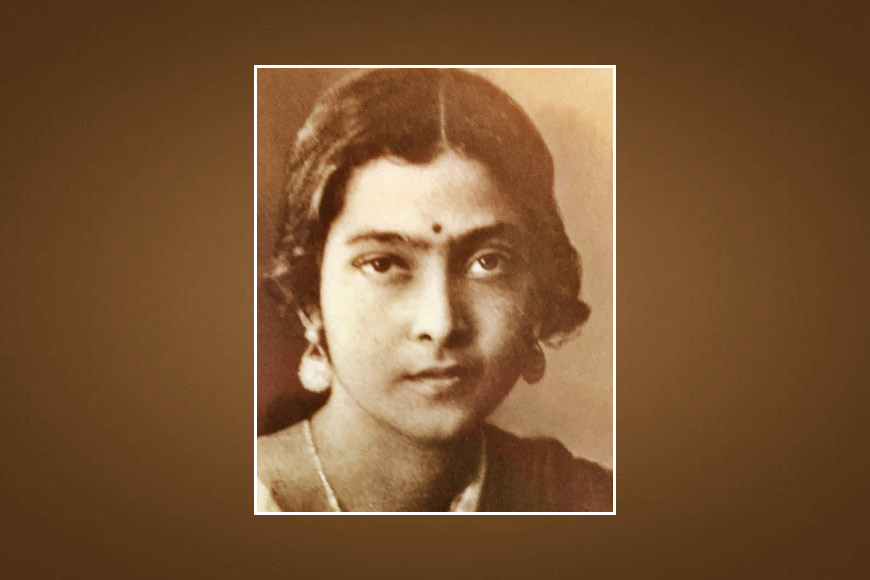Bina Das, the fearless 21-years-old who asserted rebellion against British Raj - GetBengal story

Bina Das: West Bengal's Revolutionary Force for Indian Independence
“My object was to die and if I had to die, I wanted to do it nobly, fighting against this despotic system of government which has kept my country in perpetual subjection to its infinite shame and endless sufferings, and all the while fighting in a way which cannot but tell.” – stated the fearless Bina Das before the special tribunal of Calcutta High Court, 1932. Das was only 21 years old when she asserted rebellion against the British Raj and made an attempt to kill the then Bengal’s British Governor Stanley Jackson, known as ‘Jackers’. However, her actions consequently inspired many young women to participate in the freedom struggle of India.
Das was born in 1911 into a family of revolutionaries. While her father, Beni Madhab Das, was a Brahmo teacher and social reformer, her mother, Sarala Devi, founded a hostel for the revolutionaries named Punya Ashram. Girls from prestigious schools in Kolkata, such as Victoria School, Diocesan College, Bethune College, and Brahmo Girls' School, formed a group where they received valuable instruction in motor driving, lathi khela, cycling, and swordplay, all of which would help them become revolutionaries and take part in the freedom struggle in the future. Many of these young girls left their homes and moved into Punya Ashram.
Even Bina’s sister, Kamala Das, was a freedom fighter herself. She secretly carried bombs in tiny leather and tin cases and distributed those to the other freedom fighters. Punya Ashram helped hide the bombs to avoid police checks. After completing her secondary school education, Bina Das joined Chhatri Sangha (Women Students Association), an institute for training women with the skills needed to evolve as dedicated freedom fighters.
The day was February 6, 1932. Apparently, to get her degree, Bina Das entered Calcutta University's convocation hall in a calm and composed manner. Little did the world know, she had concealed beneath her skirt a pistol loaded with five bullets. Stanley Jackson was delivering a speech when Bina advanced towards the stage. All of a sudden, she pulled out the gun and opened two rounds of bullets at Jackson. Dumbstruck with astonishment, Jackson somehow managed to dodge the first two shots. To protect him, Hassan Suhrawadry, the then-vice chancellor, rushed in front of Jackson. Bina, with all her might, fired the rest of the three shots one after another. Though one of the bullets slightly touched Jackson’s ear, the attempt to kill him went in vain.
Bina Das made headlines overnight but was pushed to nine years of federal imprisonment. Even after being subjected to inhumane torture, she denied revealing the names of her accomplices during interrogation. As the braveheart Das puts it together, “I can assure all that I have no personal feelings against the governor. As a man, he is as good as my father, but as a governor of Bengal, he represents a system which has kept enslaved three hundred million men and women of my country.”
Even after she was released, Bina resented giving up the fight for freedom. She took an active part in the Quit India Movement. She joined Jugantar, a revolutionary organization that once again led her to face three years of imprisonment. At that time, Das was serving as the secretary of the Calcutta Congress Committee. She supported Sheikh Mujibur Rahman when he declared revolution in East Pakistan against the authoritarian administration of West Pakistan and protested the Emergency called by Indira Gandhi, who was the Prime Minister of India then. In 1960, Bina Das was honoured with the Padma Shri award for her extraordinary contribution to social work.
After the death of her husband, Jatish Bhowmick, who was one of her fellow freedom fighters, Das spent the rest of her life far away from the public eye. Instead of accepting the pension paid by the government to the freedom fighters, she took up a teacher’s job and settled in an ashram in Rishikesh. It is quite heartbreaking to admit that Bina Das ended her life by the roadside in Rishikesh in anonymity. Her body was found by the passing crowd in a decomposed state, and it took the police almost a month to determine her identity. The fierce revolutionary, who bravely and unrelentingly opposed the colonial British power, is now lost to history as a forgotten hero of the Indian freedom fight.










